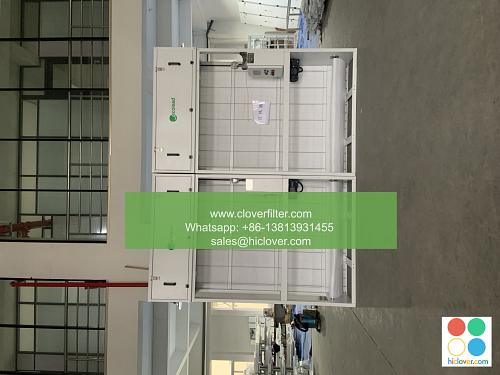Environmental Considerations in Air Filter Manufacturing

Environmental Considerations in Air Filter Manufacturing: A Sustainable Approach
Air filters play a crucial role in maintaining indoor and outdoor air quality, protecting health, and preserving the environment. However, the manufacturing process of air filters can have significant environmental implications. In recent years, the air filter industry has shifted its focus towards more sustainable and eco-friendly practices to mitigate its environmental footprint. In this article, we will explore the importance of environmental considerations in air filter manufacturing and highlight various application areas where sustainable approaches can be applied.
The manufacturing process of air filters involves the use of materials such as synthetic fibers, pleats, and adhesives, which can have negative environmental consequences. Some of the key environmental concerns associated with air filter manufacturing include:
- Raw Material Extraction: The extraction of raw materials required for air filter production can lead to deforestation, habitat destruction, and soil degradation.
- Waste Generation: Air filters are designed to be disposable, generating a significant amount of waste that can end up in landfills or oceans.
- Energy Consumption: The energy required to manufacture air filters can contribute to greenhouse gas emissions and climate change.
To reduce its environmental impact, the air filter industry is adopting several sustainable approaches, including:
- Recyclable Materials: Using recyclable materials in air filter production can reduce waste and conserve natural resources.
- Renewable Energy: Transitioning to renewable energy sources, such as solar or wind power, can reduce the industry’s carbon footprint.
- Water Conservation: Implementing water-efficient manufacturing processes can help conserve this precious resource.
Sustainable air filters can be applied in various industries, including:
- HVAC Systems: Sustainable air filters can be integrated into heating, ventilation, and air conditioning (HVAC) systems to improve indoor air quality and reduce energy consumption.
- Aerospace: Air filters used in the aerospace industry can be designed to meet specific environmental regulations and reduce the risk of water contamination.
- Automotive: Sustainable air filters can be applied in the automotive industry to improve engine performance and reduce emissions.
Environmental considerations play a crucial role in air filter manufacturing, and the industry is adapting to more sustainable practices to reduce its ecological footprint. By implementing recyclable materials, renewable energy, and water conservation measures, the air filter industry can reduce its environmental impact and contribute to a more sustainable future. With sustainable air filters being applied in various industries, the potential for positive environmental change is substantial.
Keywords: Air Filter Manufacturing, Environmental Sustainability, Recycling, Renewable Energy, Water Conservation, HVAC Systems, Aerospace, Automotive.
Summary:
- Air filter manufacturing has significant environmental implications, including raw material extraction, waste generation, and energy consumption.
- Sustainable approaches in air filter manufacturing include using recyclable materials, renewable energy, and water conservation.
- Sustainable air filters can be applied in various industries, including HVAC systems, aerospace, and automotive.
- Environmental considerations play a crucial role in air filter manufacturing, and the industry is adapting to more sustainable practices to reduce its ecological footprint.
It seems like you didn’t provide a prompt. What would you like to talk about?

